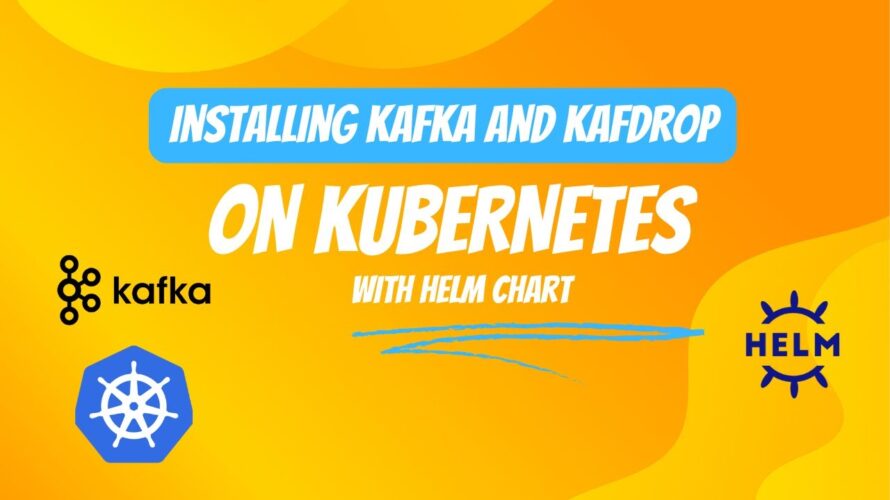Installing Kafka and Kafdrop on Kubernetes in Less Than 5 Minutes
- 2024.12.10
- コンテナ化

1. Set Up k3d Cluster
First, create a k3d cluster with the following command. This setup includes two agent nodes and a load balancer.
k3d cluster create –api-port 6550 -p “80:80@loadbalancer” –agents 2
2. Create Kafka Namespace
Next, we’ll create a dedicated namespace for Kafka.
kubectl create ns kafka
3. Install Kafka Using Helm
Now, let’s add the Bitnami Helm repository and deploy Kafka with three replicas and persistent storage.
helm repo add bitnami https://charts.bitnami.com/bitnami
helm install kafka bitnami/kafka –namespace kafka –set replicaCount=3 –set controller.persistence.size=1Gi –set listeners.client.protocol=PLAINTEXT –set listeners.controller.protocol=PLAINTEXT –set listeners.interbroker.protocol=PLAINTEXT –set listeners.external.protocol=PLAINTEXT –set extraConfig=”default.replication.factor=3″
After the deployment, monitor the Kafka pods using this command.
kubectl get po -n kafka -w
4. Clone and Configure Kafdrop
Next, we’ll deploy Kafdrop, a web UI for managing Kafka. Start by cloning the Kafdrop GitHub repository.
git clone https://github.com/obsidiandynamics/kafdrop && cd kafdrop
Edit the values-override.yaml file to configure Kafdrop. Here’s an example configuration:
image:
tag: 4.0.2
kafka:
brokerConnect: kafka:9092
server:
servlet:
contextPath: /
cmdArgs: “–message.format=AVRO –schemaregistry.connect=http://localhost:8080”
service:
type: ClusterIP
ingress:
enabled: true
hosts:
– kafdrop.devopstipstricks.local
PS: You check the latest version from the link below;
https://hub.docker.com/r/obsidiandynamics/kafdrop/tags
5. Deploy Kafdrop Using Helm
Deploy Kafdrop with the custom configuration using Helm.
helm upgrade -i kafdrop chart -n kafka -f values-override.yaml
6. Configure Local Hosts File
Finally, edit your /etc/hosts file to resolve the Kafdrop domain locally.
sudo vi /etc/hosts
Add the following entry:
127.0.0.1 kafdrop.devopstipstricks.local
7. Access Kafdrop
That’s it! Open your browser and navigate to http://kafdrop.devopstipstricks.local to access the Kafdrop UI.
#kafka #kubernetes #apachekafka
-
前の記事

Thomas Kurian, CEO- Google Cloud 2024.12.10
-
次の記事

Twibi Force AX da Intelbras: O Melhor Roteador Wi-Fi 6? Unboxing Completo!| Trends Automation 2024.12.10